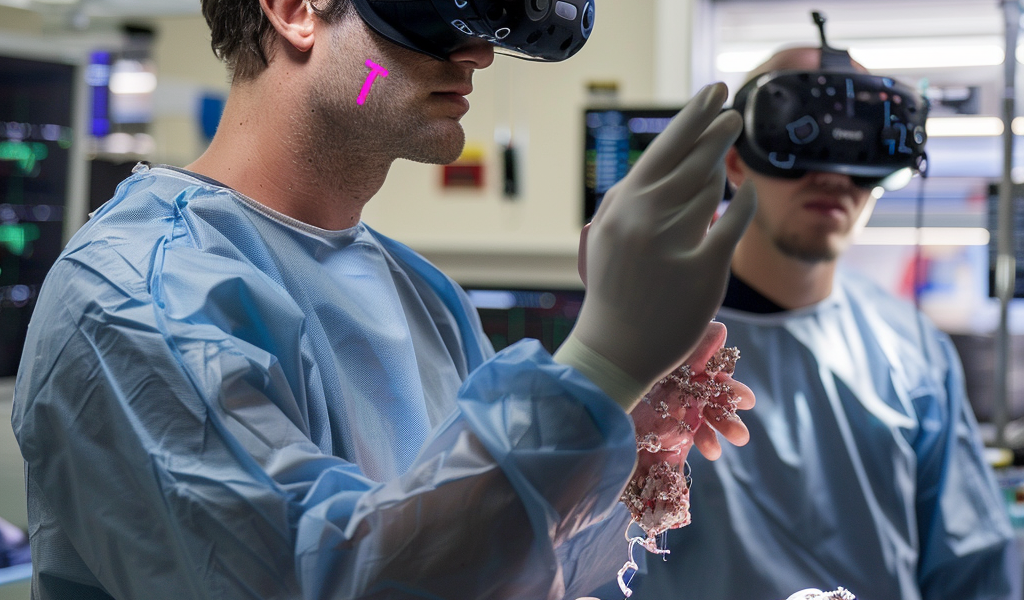Virtual reality technology is revolutionizing medical training, allowing renowned neurosurgeons like Benjamin Warf to remotely guide and instruct medical residents in distant locations. In a groundbreaking collaboration between MIT.nano Immersion Lab and a Brazilian startup, EDUCSIM, this innovative approach is bringing advanced medical instruction to remote areas of the world.
Utilizing augmented reality and virtual reality, Warf’s digital avatar stands beside medical residents in Brazil, enabling them to observe and learn delicate surgical procedures on models of infant brains. This cutting-edge technology provides an immersive experience, allowing the residents to interact with Warf’s digital twin in real-time, asking questions and replicating the techniques under his guidance.
Warf, the director of neonatal and congenital neurosurgery at Boston Children’s Hospital, emphasizes the transformative nature of this approach, stating, ‘It’s an almost out-of-body experience. Maybe it’s how it feels to have an identical twin?’ The success of this remote training is evident as neurosurgery resident Matheus Vasconcelos from São Paulo, Brazil, expresses newfound confidence and comfort in applying the techniques learned during the virtual training in real patient scenarios.
Inside the MIT.nano Immersion Lab, Warf utilizes motion-tracking gloves and markers on his body, enabling the project team to record his medical training procedures to create his digital avatar. This remarkable technology has the potential to revolutionize medical education, making expertise more accessible and bridging geographical barriers.
The collaboration between MIT.nano Immersion Lab and EDUCSIM demonstrates the power of virtual reality in expanding the reach of medical education, ultimately enhancing patient care by equipping medical professionals with advanced skills and confidence.





